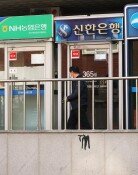Time to remove shackles on S. Koreas peaceful atomic energy use
Time to remove shackles on S. Koreas peaceful atomic energy use
Posted April. 20, 2013 04:55,
Talks between South Korea and the United States to revise a bilateral atomic energy agreement have ended without any progress. Some say that the talks have virtually collapsed. South Korea wants to have the right to reprocess spent nuclear fuel and enrich uranium. The U.S., which puts the top priority on preventing nuclear proliferation, is close to saying never. Signed in 1974, the Atomic Energy Agreement was the major driving force behind South Koreas leap in nuclear power generation over the last four decades. However, it has now become shackles restricting Seouls right to peaceful use of nuclear energy. It is necessary for South Korea to have capabilities for uranium enrichment and reprocessing to ensure a stable and economic supply of nuclear fuel for nuclear power plants.
The U.S. understands that the situation has to be changed in that South Korea, the worlds fifth-largest atomic energy power with 23 nuclear power plants, has to buy 900 billion won (805 million U.S. dollars) worth of enriched uranium from foreign countries every year. However, Washington is reluctant to exempt from the so-called Gold Standard, which strictly forbids uranium enrichment and plutonium reprocessing because Saudi Arabia, Jordan and Vietnam would want the same exemption in their ongoing negotiations with the U.S. Some say that at a time when the U.S. is leading international sanctions on North Koreas nuclear development, only South Korea cannot be treated favorably. But South Korea, as a peaceful user of atomic energy, is different from the North. Moreover, the U.S. authorized Japan that started the Pacific War to reprocess spent nuclear fuel in 1988.
Negotiators from Seoul and Washington, who have failed to narrow their differences despite six rounds of talks since 2010, are studying ways to extend the current agreement for two years. It seems that they decided it would wise to seek a compromise for the time being, as they should avoid the worst-case scenario of the Atomic Energy Agreement being terminated. However, it would be nothing but a makeshift measure aimed at reducing the political burdens on presidents of the two allies, who are scheduled to meet for a summit on May 7. It is desirable for the negotiators to seek a win-win solution, rather than postponing their homework.
If the current situation continues, South Korea will reach the maximum capacity for storing spent nuclear fuel in less than 10 years. In a sense, the U.S. is on the same boat with South Korea, as some U.S. companies have formed consortiums with South Korean corporations to export nuclear power plants. The issue of revising the nuclear agreement is a litmus test for the Seoul-Washington alliance, which the Park Geun-hye administration and the second-term Obama administration will further develop. South Koreas right to peaceful use of nuclear energy should be fully guaranteed in order to take the bilateral alliance to a next level, in which the two allies go beyond maintaining security on the Korean Peninsula and tackle the humankinds common issues.



![‘건강 지킴이’ 당근, 효능 높이는 섭취법[정세연의 음식처방]](https://dimg.donga.com/c/138/175/90/1/wps/NEWS/IMAGE/2026/01/18/133181291.1.jpg)

![“한동훈, 정치생명 걸고 무소속 출마해 평가받는 것 고려할만”[정치를 부탁해]](https://dimg.donga.com/c/138/175/90/1/wps/NEWS/IMAGE/2026/01/19/133186982.1.jpg)

